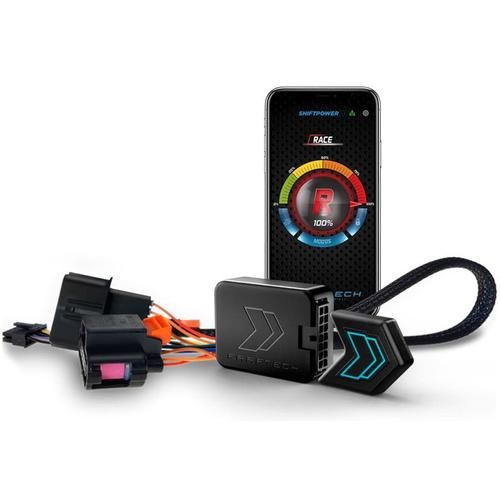Repair instructions
Do Performance Chips Work?
Summary: Performance chips are aftermarket products designed to optimize various vehicle systems to boost engine performance. They can improve power output, fuel efficiency, acceleration, top speed, and overall horsepower. However, while performance chips can provide noticeable benefits, they also put additional strain on the engine, potentially reducing the vehicle’s lifespan.
1. How Do Performance Chips Work?
2. Do Performance Chips Deliver on Their Promises?
3. Additional Ways to Boost Your Vehicle’s Performance:
- 3.1 Utilize Tuning Devices
- 3.2 Prioritize Routine Maintenance
- 3.3 Keep Up with Oil Changes
- 3.4 Lighten Your Load
- 3.5 Upgrade Auto Parts
Performance chips are popular aftermarket modifications that promise to increase your vehicle’s power, fuel economy, and overall performance. These chips can be plugged into your car’s computer system to adjust various settings, including fuel injection and ignition timing, leading to better engine output. But, do they actually work as advertised?
How Do Performance Chips Work?
Performance chips connect to the Data Link Connector (DLC) of your vehicle, similar to a scan tool used by mechanics for diagnostics and reprogramming. Once connected, the chip adjusts key systems like fuel injection, ignition timing, and even transmission shift points to improve vehicle performance.

For example, a chip might adjust the fuel-air mixture to increase horsepower or modify the transmission to shift more aggressively. The idea is to push the vehicle beyond its factory settings for improved performance. However, these changes can sometimes stress engine components, so careful consideration is necessary when using them.
Do Performance Chips Really Work?
Yes, performance chips do make a difference—but not always as much as some may expect. For example, while you may notice a slight increase in fuel efficiency (typically around 7% in some cases), the improvements in horsepower, acceleration, or top speed might not be dramatic. Performance chips can also have a more noticeable effect on shifting patterns, offering quicker and smoother gear transitions.
However, these chips may not provide huge gains, especially if you’re expecting sports car-level performance from a stock vehicle. The impact depends on the vehicle and the chip selected, as compatibility is crucial. When purchasing a performance chip, make sure it’s specifically designed for your car’s make, model, and engine type.
Potential Downsides
While performance chips can improve various aspects of your car, they do so at a cost. The increased strain on your engine from operating beyond factory settings can lead to faster wear and tear. Over time, this can reduce the lifespan of your engine and other vital components. Some chips may even cause issues with your warranty if the adjustments are too extreme.
How Else Can You Improve Your Vehicle’s Performance?
Beyond performance chips, there are several other ways to boost your car’s capabilities. Here are some effective alternatives:
1. Utilize Tuning Devices
Tuning devices, also called performance modules, allow you to adjust how your car’s engine control unit (ECU) operates. These devices work by modifying the ECU’s programming to optimize power output, throttle response, and fuel efficiency. If you prefer not to tinker with settings yourself, you can always have your car professionally tuned at an auto shop.
2. Prioritize Routine Maintenance
Routine maintenance is one of the most reliable ways to keep your vehicle running at peak performance. Having regular diagnostics and addressing any mechanical issues early will not only help optimize performance but also extend the life of your car. Aim for bi-annual maintenance to prevent any underlying problems from developing into costly repairs.
3. Keep Up with Oil Changes
Engine oil is critical to performance. It lubricates the moving parts of the engine, reducing friction and heat buildup. Over time, oil breaks down, and dirty oil can increase engine wear. By changing your engine oil regularly (typically every 3,000–7,000 miles), you’ll ensure smoother operation and better overall performance.
4. Lighten Your Load
The heavier your vehicle, the harder the engine has to work. Reducing unnecessary weight in your car can make a noticeable difference in fuel economy and acceleration. Remove excess cargo from your trunk, and if possible, choose lighter aftermarket parts to improve both speed and efficiency.
5. Upgrade Auto Parts
For serious performance enthusiasts, upgrading key auto parts can offer the most significant improvements. Consider investing in a performance exhaust system, cold air intake, or high-flow fuel injectors. These upgrades work in tandem with performance chips to increase engine efficiency. Just be sure to research compatible parts for your make and model to avoid any installation headaches.
Final Thoughts
Performance chips can provide noticeable improvements to your vehicle’s power and efficiency. However, they’re not a cure-all and come with potential risks, including engine strain and reduced longevity. To truly get the most out of your vehicle, combine the use of performance chips with regular maintenance, oil changes, and smart driving habits. And always make sure that any modifications you make are compatible with your vehicle to prevent long-term damage.
